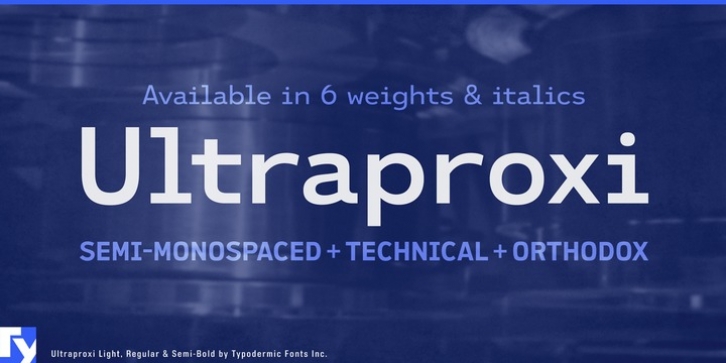Ultraproxi was designed by Ray Larabie and published by Typodermic. Ultraproxi contains 12 styles and family package options.
Ultraproxi is an austere, technical sans-serif typeface. Visual cues were taken from high speed computer printers from the 1950s to 1970s. You’ve probably seen this type of printing on old driver’s licenses or magazine subscription labels. One of the more well known, early line printers was the IBM 1403 chain printer. Metal type slugs were linked in a chain which rapidly whirled over an ink ribbon. On the back of the page, a succession of electromagnetic hammers smacked the paper when the appropriate character lined up. The hammers struck quickly but that fast-moving chain of slugs caused some horizontal smearing. Those machines were lightning fast; later models could print over 1000 lines per minute. This printing system required a sturdy typeface design which was with the catalyst for Ultraproxi.
Ultraproxi is based on a semi-monospace concept. It has some of the characteristics of monospaced type without actually being monospaced. Your readers will perceive it as having a technical demeanor but you won’t have to deal with the downsides of working with real monospaced type: uneven spacing and fewer words to the line. Ultraproxi includes 6 weights and italics. Almost all current Latin based languages are supported, including Cyrillic languages and Greek.

